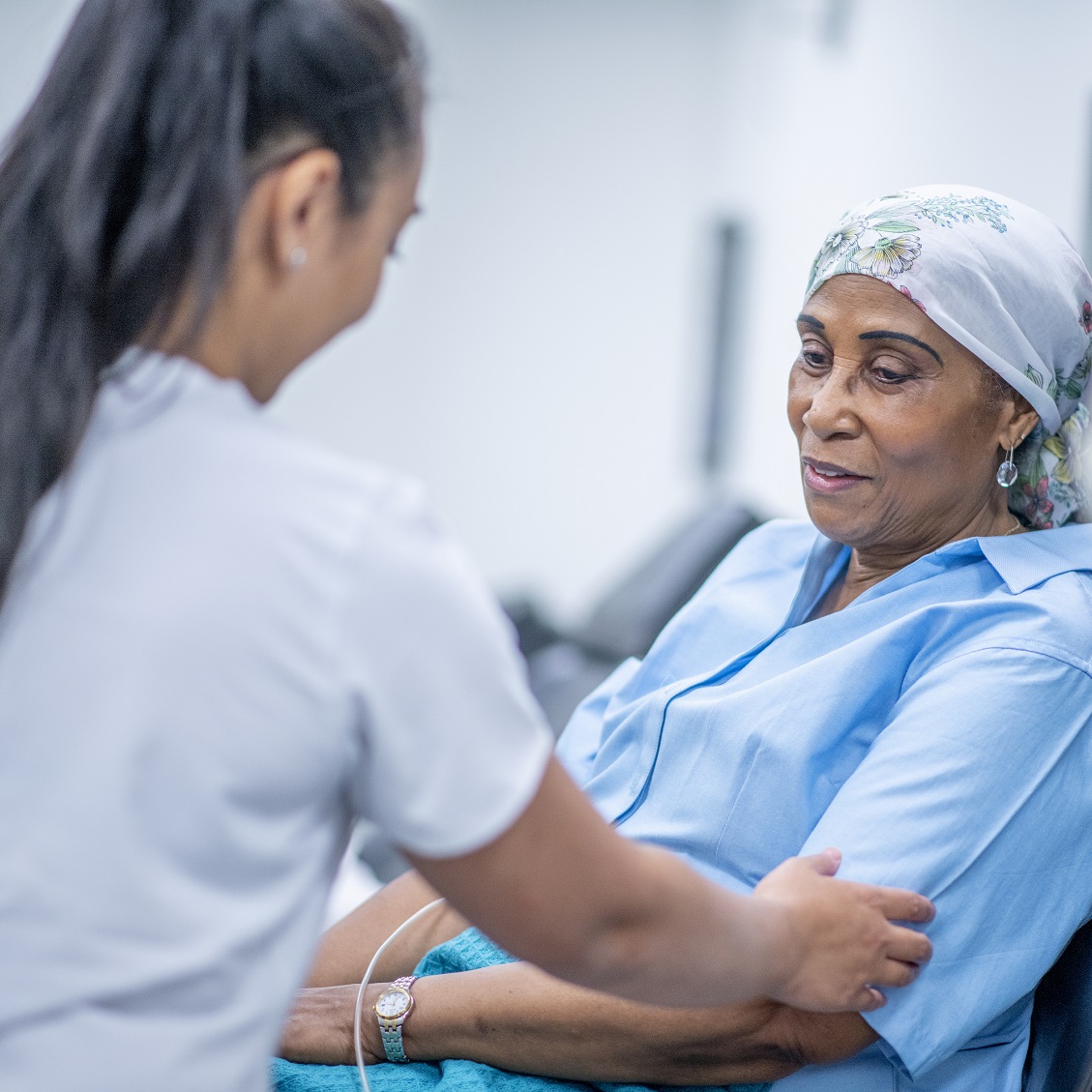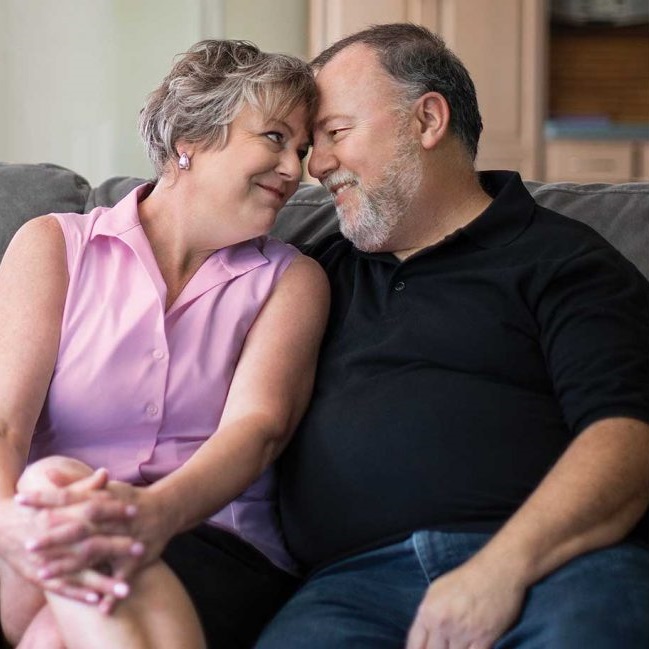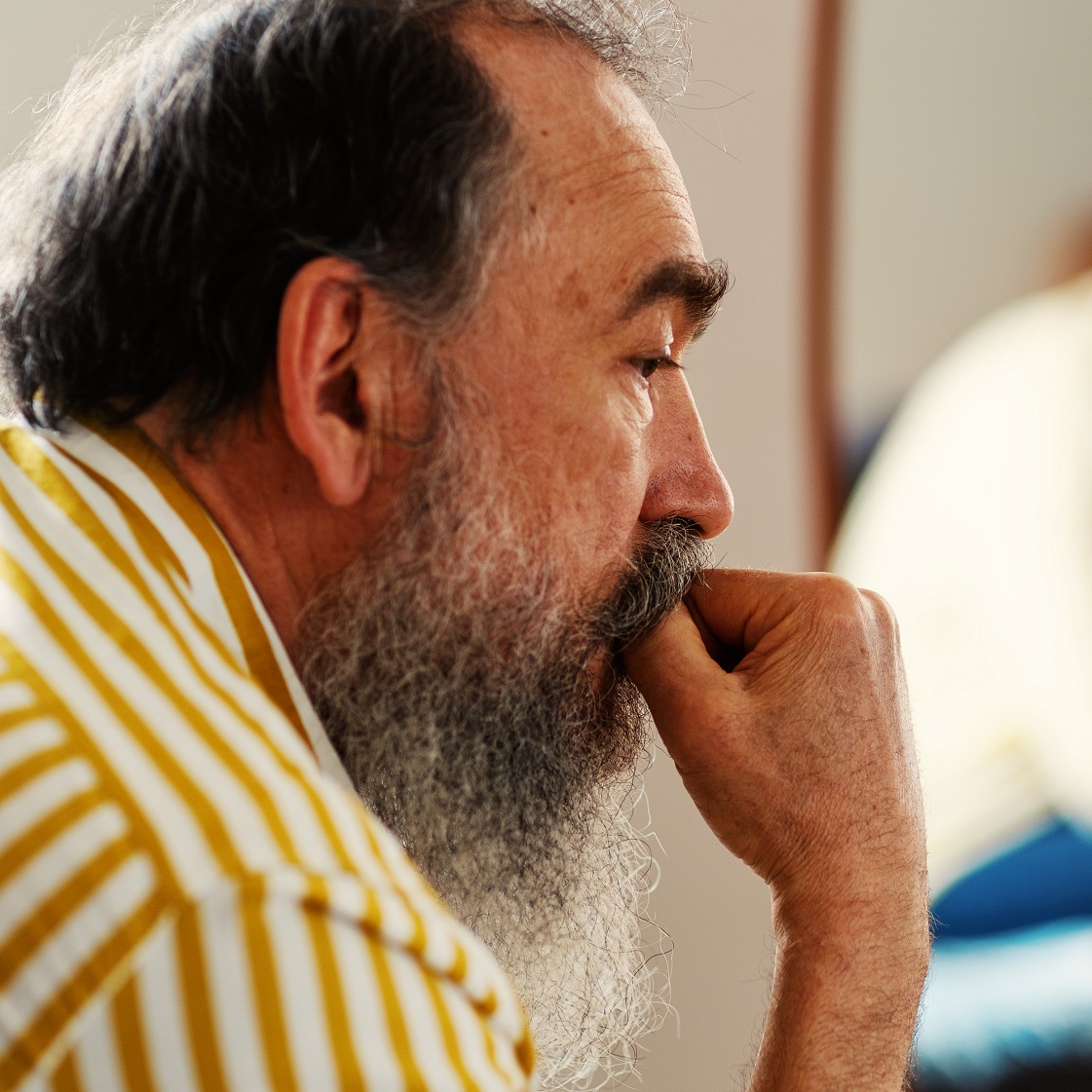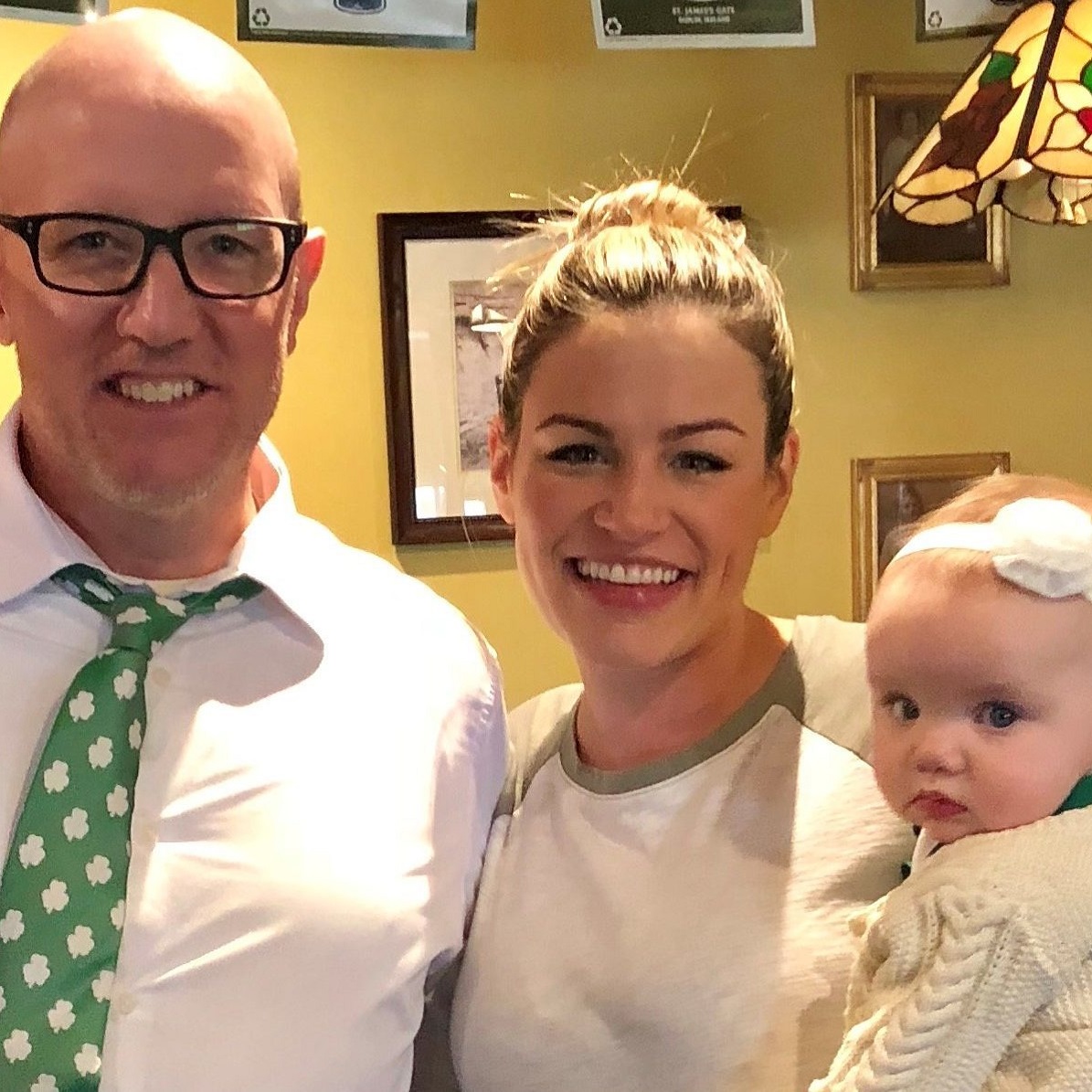Toms River Man Battles Prostate Cancer with a Can-do Attitude

May 18, 2021
When 66-year-old Rudy Manz from Toms River, New Jersey, found out he had an aggressive form of prostate cancer, he fought it with the same can-do attitude with which he approaches life.
After receiving his annual health check in January 2020, Rudy learned his prostate-specific antigen (PSA) levels had increased, a marker for prostate cancer. “I pulled out all my blood tests from the two years prior. My PSA was 1.1, then 2.2 and then 3.2 in January 2020,” says Rudy. “I made the appointment with Dr. Fam because I thought it was strange that it was climbing.”
Although his PSA levels were still in the normal range, the upward trend warranted caution. “We shouldn't overlook even slight rises in the PSA because in some patients that can mean something very significant,” says urologist, Mina Fam, M.D.
Dr. Fam discussed a number of options with Rudy, including closely monitoring PSA levels, a biopsy or an MRI. Rudy opted for an MRI, which Dr. Fam was able to schedule swiftly at Ocean University Medical Center despite the pandemic. The MRI showed a lesion suspicious for cancer.
Next, at Jersey Shore University Medical Center, Rudy had a UroNav Fusion biopsy, which uses 3D images to identify suspicious areas in real time, allowing doctors to more accurately take samples for testing. It confirmed that Rudy had intermediate- to high-risk prostate cancer. Rudy remembers the moment Dr. Fam broke the news to him and his wife. “He said he had bad news, but that we caught it early and it's all repairable. He was right to the point, which I loved,” says Rudy. “My wife and I, we just rolled with it. We said, ‘OK, what’s next? Where do we go from here?’”
Decision Time
Rudy’s treatment options were surgery to remove his prostate or radiation. In terms of cancer control, they’re essentially equivalent, says Dr. Fam, and both have potential side effects. In Rudy’s case, Dr. Fam recommended surgery.
“In general, patients who are younger and healthier, I tend to favor surgery. For patients who are older, less healthy or have medical issues that preclude surgery, radiation can be a good option for them,” he says.
Dr. Fam suggests that patients discuss their options with loved ones, be evaluated by a radiation oncologist and seek a second opinion from another doctor. “It's important for patients to feel comfortable with their decision, so I like them to talk to everybody they can to help them make that decision.”
Rudy discussed what to do with his wife, as well as with friends who had been through treatment for prostate cancer. But he didn’t feel it necessary to consult other medical professionals. “I trusted Dr. Fam implicitly,” says Rudy, who decided that surgery was his best choice. “I consider myself still young and I can get through virtually anything. So that was a big factor. And I didn’t want something harmful in my body if we can take it out.”
Dedicated Care
In July 2020, the day of Rudy’s surgery arrived. Rudy chose Ocean University Medical Center for this surgery because of his recent positive experience there getting a knee replacement with David Rodricks, M.D. He felt the facility and care were top notch for that procedure and was confident that this scenario wouldn’t be any different.
Dr. Fam performed a robotic radical prostatectomy, which removes the entire prostate gland and some surrounding tissue, as well as a lymph node dissection. One advantage of surgery is the ability to get a fuller picture of the extent of the cancer. In Rudy’s case, he was down-staged to what’s called an unfavorable intermediate-risk prostate cancer, with no cancer in his lymph nodes.
Rudy is full of praise for the care and attention he received. “I was nervous that day, but everyone introduced themselves to me and explained what was going to happen. That made me feel really confident,” he says. “There was a nurse with me the whole time. It felt like she was dedicated to me.”
Even though his surgery was during the height of the coronavirus pandemic, Rudy had no concerns about his care or safety. “I felt very safe during my time at the hospital,” he says.
A Grateful Recovery
Rudy spent one night at Ocean and went home the next day. For the first two weeks, he rested, something that doesn’t come naturally to him. “At first I was just a sit-and-do-nothing puppy. That’s not my nature, but I was nervous I would hurt myself,” he says.
Once he started feeling better, he began walking with his wife. “We started with a mile and we got up to four miles. It felt great.” After about a month, Rudy was back to activities like landscaping, playing golf and chopping wood.
Follow-up blood tests show his PSAs levels are undetectable with no trace of cancer. “Even treated prostate cancer can have a recurrence, so we typically follow these patients closely. If it does recur, we have other options, but my hope and my goal is that it doesn't recur,” says Dr. Fam.
Thanks to the excellent care by Dr. Fam and his team, Rudy is back to enjoying life and retirement. “We told Dr. Fam we put him on our Christmas card list,” says Rudy. “I have never met a doctor as skilled and as gentle and nice as Dr. Fam.”
Next Steps & Resources:
- Meet our source: Mina Fam, M.D.
- To make an appointment with Dr. Fam or another doctor near you, call 800-822-8905 or visit our website.
- Learn more about prostate cancer care
The material provided through HealthU is intended to be used as general information only and should not replace the advice of your physician. Always consult your physician for individual care.
Health Screenings Everyone Should Get

Many of us have a goal of improving our health. But, did you know that getting the right health screening, at the right time, is one of the most important things you can do for your health?

Proton Therapy vs. Conventional Radiation Therapy: What to Know
What’s the difference between conventional radiation therapy and proton therapy—and who is a candidate?

Prostate Cancer: Eye on the Horizon
Mark, then 56, hadn’t experienced any early symptoms of prostate cancer, which can include urinary urgency or frequency. But routine blood tests showed his level of prostate specific antigen (PSA), a protein that can signal prostate cancer or other problems, was creeping up.

11 Potential Cancer Symptoms You Shouldn’t Ignore
While the list of possible cancer symptoms is long and varied, don’t ignore these potential signs.

Mom, 34, Credits Urologist — and the ‘Luck of the Irish’ — with Successful Surgical Outcome
On the morning of St. Patrick’s Day 2019, Jessica Davey, a 34-year-old married mother of two from Hillsdale, New Jersey, woke up with severe lower back pain.
